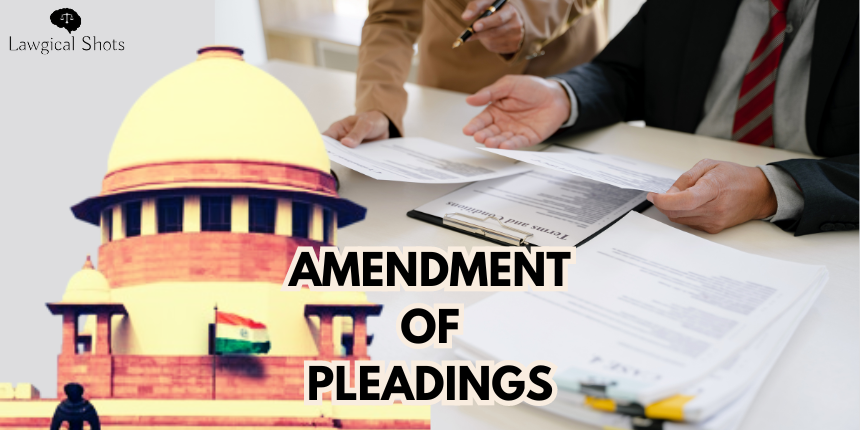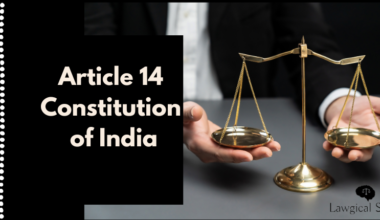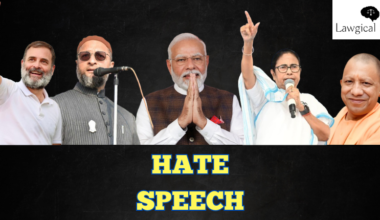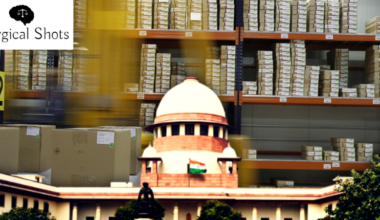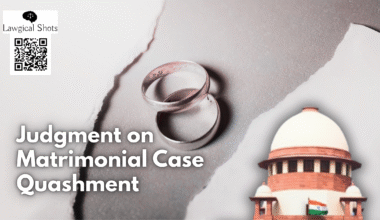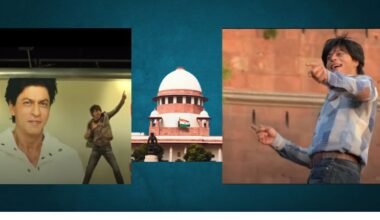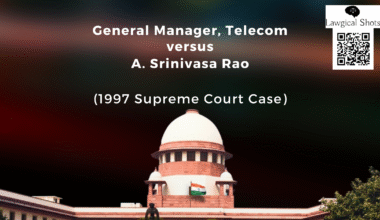The law regarding amendment of pleadings after commencement of trial has been provided under Order 6 Rule 17 of the Code of Civil Procedure, 1908. Order 6 of CPC talks about ‘Pleadings Generally’, while Order 17 of the same discusses ‘Amendment of Pleadings’. The provision was added through CPC 2002 amendment and reads as –
“17. Amendment of pleadings — The Court may at any stage of the proceedings allow either party to alter or amend his pleadings in such manner and on such terms as may be just, and all such amendments shall be made as may be necessary for the purpose of determining the real questions in controversy between the parties:
Provided that no application for amendment shall be allowed after the trial has commenced, unless the Court comes to the conclusion that in spite of due diligence, the party could not have raised the matter before the commencement of trial.”
In simple words, the provision empowers Courts to allow amendments to pleadings at any stage of proceedings, necessary for determining the real questions in controversy. However, there is a roadblock in the proviso which restricts such amendments after commencement of trial, and gives discretionary powers to the Courts to determine ability of party to raise the matter in spite of due diligence. While the provision is a bit complex, several Supreme Court judgments on amendment of pleadings – Order 6 Rule 17 CPC have attempted to clear the clouds.
Landmark SC Judgments on Amendment of Pleadings
Due Diligence in Amendment of Pleadings
In Basavaraj v. Indira and Others (decided on February 29, 2024), the party reasoned ‘oversight and by mistake’ for filing a belated application seeking amendment of the plaint. The Apex Court highlighted the absence of argument of due diligence at the time of filing the suit while not seeking relief prayed for through amendment. The Bench clarified that the same could not be accepted as a ground to allow any amendment in the pleadings at the fag end of the trial, when knowledge of facts was admitted.
Amendment cannot be claimed as a matter of right
The Supreme Court in M. Revanna v. Anjanamma (Dead) by legal representatives and others (decided on February 14, 2019) clarified the rule around amendment of pleadings by stating that “Leave to amend may be refused if it introduces a totally different, new and inconsistent case, or challenges the fundamental character of the suit. The proviso to Order VI Rule 17 of the CPC virtually prevents an application for amendment of pleadings from being allowed after the trial has commenced, unless the Court comes to the conclusion that in spite of due diligence, the party could not have raised the matter before the commencement of the trial. The proviso, to an extent, curtails absolute discretion to allow amendment at any stage. Therefore, the burden is on the person who seeks an amendment after commencement of the trial to show that in spite of due diligence, such an amendment could not have been sought earlier. There cannot be any dispute that an amendment cannot be claimed as a matter of right, and under all circumstances. Though normally amendments are allowed in the pleadings to avoid multiplicity of litigation, the Court needs to take into consideration whether the application for amendment is bona fide or mala fide and whether the amendment causes such prejudice to the other side which cannot be compensated adequately in terms of money.”
Application for Amendment of Pleadings – Factors to be considered by Courts
In Revajeetu Builders & Developers v. Narayanaswamy & Sons & Others (decided on October 9, 2009), the Supreme Court held deciding an application under Order 6 Rule 17 to be a ‘very serious judicial exercise’. The Bench laid some basic principles to be considered by the Courts dealing with an application for amendment of pleadings:
“(1) Whether the amendment sought is imperative for proper and effective adjudication of the case? ;
(2) Whether the application for amendment is bona fide or mala fide?;
(3) The amendment should not cause such prejudice to the other side which cannot be compensated adequately in terms of money;
(4) Refusing amendment would in fact lead to injustice or lead to multiple litigation;
(5) Whether the proposed amendment constitutionally or fundamentally changes the nature and character of the case? and
(6) As a general rule, the court should decline amendments if a fresh suit on the amended claims would be barred by limitation on the date of application.”
Admission can be explained by amendment of pleadings
In Sushil Kumar Jain v. Manoj Kumar and Another (decided on May 5, 2009), the Court said that “Even assuming that there was admission made by the appellant in his original written statement, then also, such admission can be explained by amendment of his written statement even by taking inconsistent pleas or substituting or altering his defence.”
Proviso to Order 6 Rule 17 CPC couched in mandatory form
The Apex Court in Vidyabai & Others v. Padmalatha & Another (decided on December 12, 2008) perused the proviso to Order 6 Rule 17 CPC which was inserted through 2002 amendment. The Court expressed that the same was couched in a mandatory form, and that the Court’s jurisdiction was taken away, with the condition that the Court must be able to conclude that in spite of due diligence, the matter could not have been raised before the commencement of trial.
Courts should allow all amendments necessary for determining real question in controversy
In Rajesh Kumar Aggarwal & Ors. v. K.K. Modi & Ors. (decided on March 22, 2006), the Supreme Court expressed that “The object of the rule is that Courts should try the merits of the case that come before them and should, consequently, allow all amendments that may be necessary for determining the real question in controversy between the parties provided it does not cause injustice or prejudice to the other side.”
Amendment of Pleadings in case of Subsequent Event
The Supreme Court in Om Prakash Gupta v. Ranbir B. Goyal (decided on January 18, 2002) “The ordinary rule of civil law is that the rights of the parties stand crystallised on the date of the institution of the suit and, therefore, the decree in a suit should accord with the rights of the parties as they stood at the commencement of the lis. However, the Court has power to take notice of subsequent events and mould the relief accordingly subject to the following conditions being satisfied :
(i) that the relief, as claimed originally has, by reason of subsequent events, become inappropriate or cannot be granted;
(ii) that taking note of such subsequent event or changed circumstances would shorten litigation and enable complete justice being done to the parties; and
(iii) that such subsequent event is brought to the notice of the court promptly and in accordance with the rules of procedural law so that the opposite party is not taken by surprise.
Such subsequent event may be one purely of law or founded on facts. In the former case, the court may take judicial notice of the event and before acting thereon put the parties on notice of how the change in law is going to affect the rights and obligations of the parties and modify or mould the course of litigation or the relief so as to bring it in conformity with the law. In the latter case, the party relying on the subsequent event, which consists of facts not beyond pale of controversy either as to their existence or in their impact, is expected to have resort to amendment of pleadings under Order 6 Rule 17 CPC. Such subsequent event, the Court may permit being introduced into the pleadings by way of amendment as it would be necessary to do so for the purpose of determining real questions in controversy between the parties.”
No rigid and technical approach
The Supreme Court in Dondapati Narayana Reddy v. Duggireddy Venkatanarayana Reddy & Ors. (decided on August 29, 2001) reprimanded the rigid and technical approach and explained that “The amendment should, generally, be allowed unless it is shown that permitting the amendment would be unjust and results in prejudice against the opposite side which cannot be compensated by costs or would deprive him of a right which has accrued to him with the lapse of time. Amendment may also be refused, if such a prayer made separately, is shown to be barred by time.”
Mere delay in filing application for amendment of pleadings not enough for refusal
The Supreme Court in M/S. Estralla Rubber v. Dass Estate (Private) Ltd. (decided on September 12, 2001) explained that “In certain situations a time barred claim cannot be allowed to be raised by proposing an amendment to take away valuable accrued right of a party. However, mere delay in making an amendment application itself is not enough to refuse amendment, as the delay can be compensated in terms of money. Amendment is to be allowed when it does not cost serious prejudice to the opposite side.”
Order 6 Rule 17 CPC – Liberal approach should be the general rule
The Apex Court in B.K. Narayana Pillai vs. Parameswaran Pillai and another (decided on December 13, 1999) elaborated that “The power to allow the amendment is wide and can be exercised at any stage of the proceedings in the interests of justice on the basis of guidelines laid down by various High Courts and this Court. It is true that the amendment cannot be claimed as a matter of right and under all circumstances. But it is equally true that the courts while deciding such prayers should not adopt a hyper technical approach. Liberal approach should be the general rule particularly in cases where the other side can be compensated with the costs. Technicalities of law should not be permitted to hamper the courts in the administration of justice between the parties.”
Amendment of Pleadings on Commencement of Trial – Elucidated
The ‘commencement of trial’ holds utmost importance for Courts deciding a case of amendment of pleadings. Therefore, it is crucial to understand the Apex Court’s stance on what constitutes the commencement of trial under the Order 6 Rule 17 CPC.
Trial commences at filing of affidavit for witness examination in chief
The Supreme Court in Vidyabai (supra) held that “The date on which the issues are framed is the date of first hearing. Provisions of the Code of Civil Procedure envisage taking of various steps at different stages of the proceeding. Filing of an affidavit in lieu of examination in chief of the witness, in our opinion, would amount to ‘commencement of proceeding’.”
Several stages indicate commencement of trial
In Baldev Singh & Ors v. Manohar Singh & Anr. (decided on August 3, 2006), the Bench observed that the suit was not at the verge of conclusion and illuminated that “commencement of trial as used in proviso to Order 6 Rule 17 in the Code of Civil Procedure must be understood in the limited sense as meaning the final hearing of the suit, examination of witnesses, filing of documents and addressing of arguments.” The Court refused to reject the amendment since parties were yet to file their documents.
Commencement of trial when issues framed and case set for recording evidence
The Apex Court in Kailash vs Nanhku & Ors (decided on April 6, 2005) held that “In a civil suit, the trial begins when issues are framed and the case is set down for recording of evidence. All the proceedings before that stage are treated as proceedings preliminary to trial or for making the case ready for trial.”
Trial begins with performance of act necessary to proceed with trial
The Supreme Court in Union Of India & Ors. v. Major General Madan Lal Yadav [Retd.] (decided on March 22, 1996) clarified that “trial means act of proving or judicial examination or determination of the issues including its own jurisdiction or authority in accordance with law or adjudging guilt or innocence of the accused including all steps necessary thereto. The trial commences with performance of the first act or steps necessary or essential to proceed with trial.”
